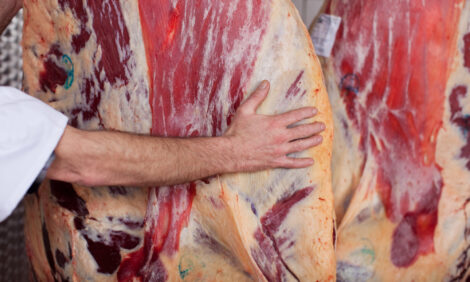



Ag Committee Calls EC Dairy Measures Insufficient
EU - How best to halt the fall in milk prices and relieve producers? The measures taken or envisaged by the European Commission to resolve the current crisis are inadequate, said Agriculture Committee MEPs and producer representatives in a debate on Tuesday 21 July.A majority of committee members advocated readjusting quotas decided as part of the common agricultural policy (CAP) health check.
"We all agree on the fact that the current proposals are inadequate", said Agriculture Committee Chair Paolo De Castro (S&D, IT), after the debate, adding that the situation in the dairy sector could soon be addressed in an own-initiative report. He also hoped that Agriculture Commissioner Mariann Fischer Boel would be able to reply to MEPs' questions on this topic at the Agriculture Committee's next meeting, on 1 September.
The Commission proposals are "not likely to bring about a soft landing for the sector but rather a rapid crash", said Albert Dess (EPP, DE). Mr Dess called on the Commission to propose suspending the increase in production quotas and "not to give up export refunds in the short term: this would weaken our negotiating position in the World Trade Organisation" (WTO), he observed.
"It was clear during the CAP health check that the Commission was moving towards a growing liberalisation of the sector, even though the signals showed us that the trend was already going into reverse", said Luis Manuel Capoulas Santos (S&D, PT), adding that the Commission "is now proposing only palliatives (…) whereas what is needed is exceptional measures".
Need for market transparency
By contrast, George Lyon (ALDE, UK), agreed with the Commission proposals and encouraged it to "go further", notably by granting farmers in difficulty advances on payments and helping to enhance market transparency. "Supermarkets are accumulating substantial profits which should be passed on to producers", he added.
This view was echoed by James Nicholson (ECR, UK), who observed that "something is wrong" in the distribution structure, and criticised the Commission for "failing to grasp the urgency" of a situation in which prices have fallen to "dumping" levels. Mr Nicholson also highlighted the problems that the credit crunch is creating for farmers.
Refunds "export the crisis to other markets"
The Commission proposals "are a return to the 1980s", said Martin Häusling (Greens/EFA, DE), expressing astonishment that the Commission had come "to make such a slim report to us today". He advocated reducing quotas until markets are balanced, and putting an end to export refunds, which, he said, "just export the crisis to other markets". "Liberalisation is a mistake - we must return to reason", he declared.
"Prices, having been exceptionally high in 2007, are very low today", said the Commission, which is to present its report on the EU dairy sector on Wednesday 23 July. The Commission had "reacted quickly by authorising the private storage of butter" and had also announced measures to promote domestic consumption and extend the distribution of milk in schools, it said, adding that it also proposes to "prolong the intervention period until February 2010, or longer if the crisis lasts"
Freeze "at least 5 Per Cent of quotas"
"One farmer in two is a milk producer and hence is affected by the price collapse, said Gerd Sonnleitner, Vice-President of the Committee of Professional Agricultural Organisations in the EU (COPA). Mr Sonnleitner stressed the "gulf between producer prices and consumer prices" and called for a prolongation of the intervention and private storage regime, an extension of export refunds and buying back quotas from farmers when they retire.
European Milk Board (EMB) President Romuald Schaber, said the situation created by falling prices was "dramatic", and that the EU's policy of increasing quotas was to blame. "The counter-measures taken by the Commission and the Council so far are bad. This programme is destroying dairy producers", he said, calling for at least 5 per cent of quotas to be frozen, "so as to encourage farmers to produce less".
The crisis "will lead to a social and territorial disaster" if the EU does not reverse its current policy, said Xavier Delwarte, of the international peasant movement Via Campesina. "If the Commission restricts itself to the CAP health check framework, it aggravates the crisis", he observed. Mr Delwarte advocated cutting production (except for small producers), retaining quotas, ensuring a minimum buying-in price for milk, eliminating export refunds, and protection against cut-price imports from third countries. He also called for incentives for more autonomous production, using less soya and more local fodder, and replacing the WTO framework with a food sovereignty one.
TheCattleSite News Desk


